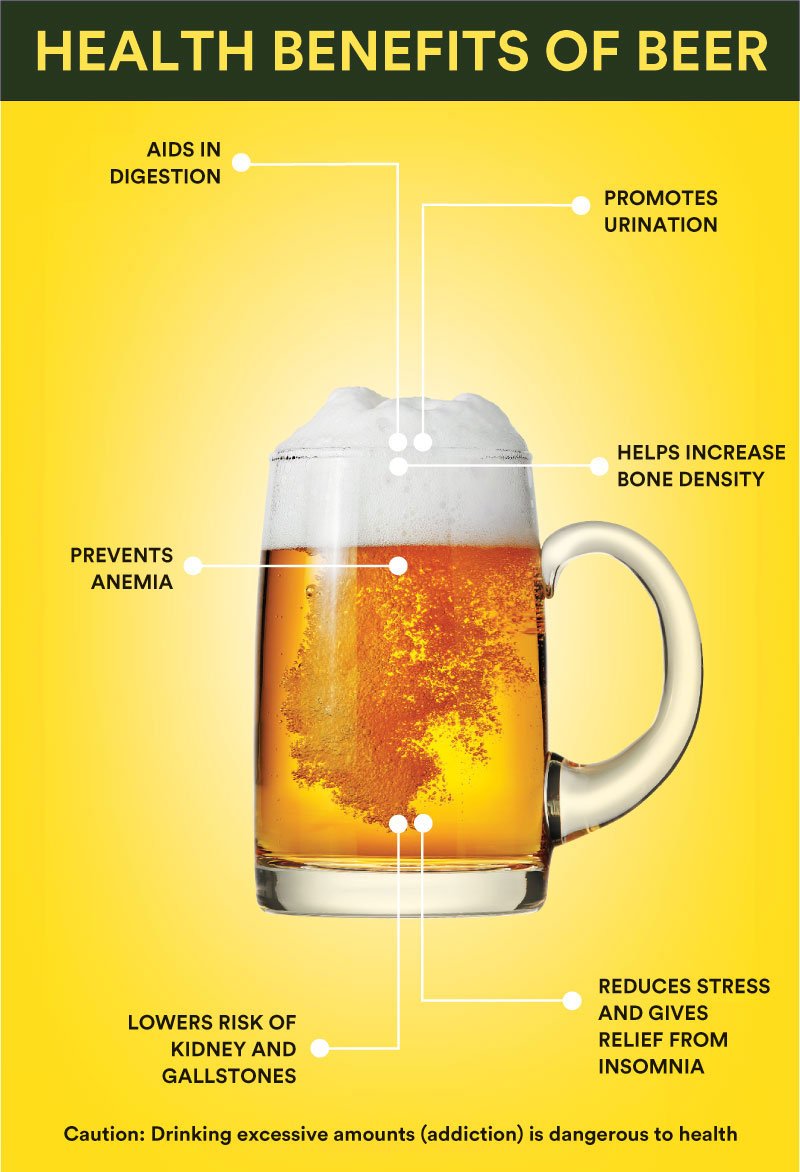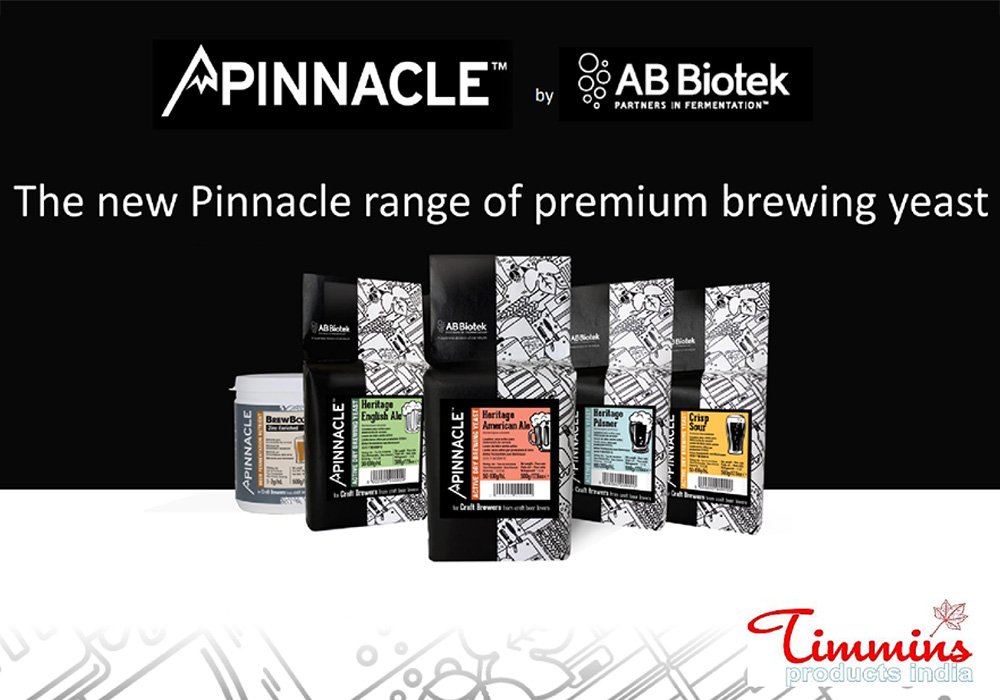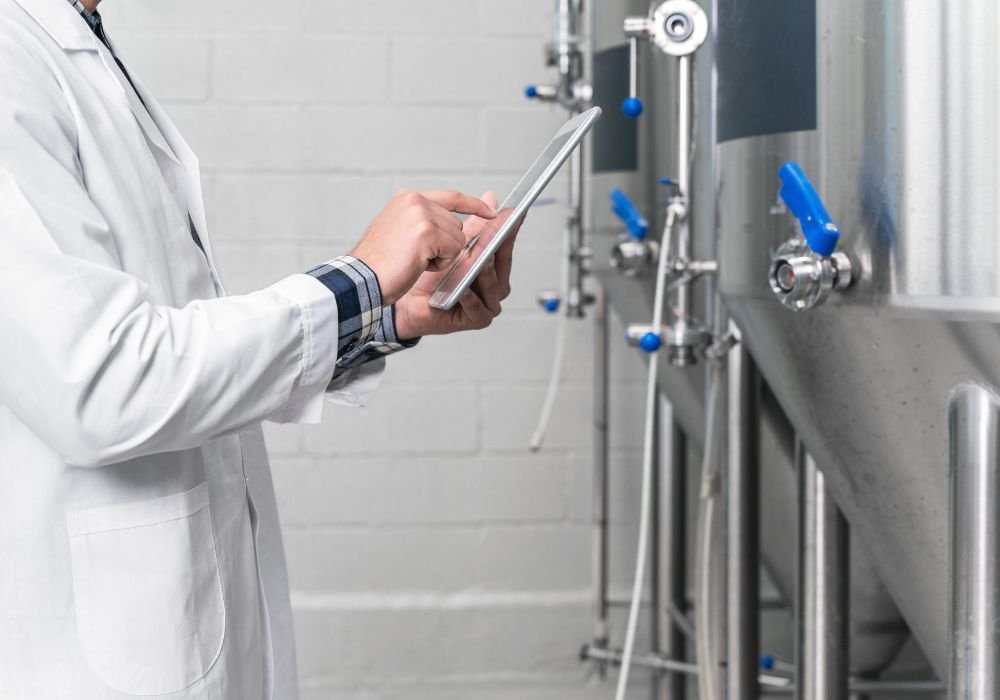
Dr Nirupa Bareja
With a PhD Biological Science and a position as Chief Adviser at the Mazumdar Shaw Medical Foundation, Dr Nirupa Bareja also serves on the scientific & technical advisory board of three innovative start-up - SigTuple, Aten Porous and 1Crowd.Director-India operations-Vicus. Therapeutics USA. In an interactive session with Brewer World, Dr Bareja, talks about the healthy side effects of beer.
Brewing and drinking of beer date back to 5000 BC. It has been recorded in the ancient history of Mesopotamia. Before the industrial revolution, it was brewed at a domestic level. But post that, it was produced using industrial set ups. In present times, there are many companies that produce and sell various types of beers.
When one talks of beer the first thought that comes to mind is celebratory! Most parties have beer as a cheery brew along with food to be enjoyed with friends. However, often the understanding is that beer is not for health watchers. It’s touted as a drink to stay away from if one isweight conscious and maintains a strict food regimen.
The intent of this article is to turn that thinking on its head. Contrary to what good health advocates believe the health benefits of beer include its anti-carcinogenic properties, a reduced risk of cardiovascular diseases, and an increased bone density. It helps in the prevention of dementia and coronary diseases, aids the digestive system, has anti-aging properties, and can also treat diabetes, gallstones, kidney stones, osteoporosis, and hypertension. It also acts as a stress buster and a diuretic The list goes on ...
Before elaborating on the above I will help us understand – what is beer?
Beer is an alcoholic beverage brewed from cereal grains that are responsible for its nutritional values. People usually prefer to drink it with certain meals and it is the third most popular drink superseded only by tea and water.
Beer is an alcoholic beverage brewed from cereal grains that are responsible for its nutritional values. People usually prefer to drink it with certain meals and it is the third most popular drink superseded only by tea and water.
Nutrition Facts
Beer has a greater protein and vitamin B content than wine, while its antioxidant content is equivalent to that of wine. Hops, a major component for brewing this beverage, are rich sources of flavonoids, which are potent antioxidants.
It is a very good source of certain minerals that play essential roles in various metabolic processes. If taken in moderate quantities, it can definitely boost health in a number of ways.
Health Benefits of Beer
Health benefits of beer become pronounced if had in moderation. Some of them include the following:
- Prevents cancer: A flavonoid compound called xanthohumol is found in the hops commonly used in brewing beer. It has been observed playing a major role in the chemoprevention of many types of cancer, including prostate cancer. It has been proven effective in fighting cancer, similar to red wine. According to bio-medicine, it is also a good source of polyphenols, due to the grains used for fermentation
- Protects the heart: Beer contains vitamin B6, which protects against heart diseases by preventing the build-up of a compound called homocysteine. It has a thinning effect on the blood and prevents the formation of clots, which cause blockages in the coronary arteries. Beer consumption also reduces the risk of inflammation, the root cause of atherosclerosis, which is cholesterol and plaque building in the blood vessels and artery walls.
- Increases bone density: Beer intake is shown to increase bone density, thereby preventing the risk of fractures and osteoporosis.
- Controls diabetes: Studies have linked beer consumption to a lower prevalence of type 2 diabetes.
- Prevents anaemia: Beer is a good source of vitamin B12 and folic acid, a deficiency of which may lead to anaemia. Vitamin B12 is also essential for maintaining normal growth, good memory, and concentration.
- Lowers blood pressure: Regular beer drinkers are found to have lower blood pressure, compared to people who consume a similar amount of wine or other spirits.
- Delays aging: Beer increases the potency and impact of vitamin E, which is a major antioxidant in the body. It is an important part of the maintenance of healthy skin, while also slows down the aging process.
- Prevents gallstones: Regular consumption of a moderate amount of beer affects the cholesterol levels and decreases bile concentration, leading to a reduced risk of developing gallstones.
- Prevents dementia: Beer consumption also boosts the level of “good cholesterol” by 10-20%, thus reducing the risk of dementia and cardiovascular diseases.
- Improves digestion: Beer is shown to possess a number of digestive properties, which include the stimulation of gastrin, gastric acid, cholecystokinin, and pancreatic enzymes.
- Reduces risk of kidney stones: Beer is high in potassium and magnesium, which results in a reduced risk of kidney stones. The silicon present in it is readily absorbed by the body to protect against osteoporosis.
- Stress buster: Like other alcoholic drinks, beer is shown to reduce stress and facilitate sleep.
- Diuretic quality: Beer acts as a diuretic and significantly increases urination. This facilitates the increased removal of toxins and waste materials from the body.
- Cleanses gastrointestinal tract: Beer is a good source of soluble fibres that promote general health. This includes being good for the heart, as well as helping to clean out the digestive tracts.
Limited consumption also ensures that the calorie intake from it does not affect the health adversely.

BEER FAQs
How to brew beer?
Beer is made using 4 ingredients- barley, hops, water, and yeast.One can make beer at home using a brewing kit and supplies that are easily available in the local market or online. Boil malt extract and hops followed by sterilizing this mixture. Cool down the mixture, add yeast and let the fermentation begin. Store and monitor the fermentation and when the beer is fully fermented it is bottled and set to age for 2-6 weeks before use.store it in the refrigerator and enjoy it with family and friends.
Prebeerbiotics - While probiotics in food and drink are most commonly found in products such as infant formula, fermented milk products and more recently non-dairy products such as cereal, for the first time they have been successfully incorporated into an alcoholic beverage!
The challenges in developing beer as probiotics are live microbes. The key is to ensure that they are not killed by stress from beer ethanol content, hop acids, lactic acid etc. In conventional brews several probiotic strains were found to die off after 1 to 4 days.
The special brew involved boiling the mixed ingredients, cooling, filtering, and adding yeast and probiotics, fermentation and then storage.
Survival strategy
Probiotics survival in the special brew might be explained by how it interacts with the yeast, which had reduced hop acids by binding to the cell walls.
Another important characteristic of the beer was that it was unfiltered and unpasteurised as otherwise the probiotics could be killed.
Further developing such special brews is dependent on the probiotics used, storage time and temperature and of course consumer acceptance. Does this need to be added.
Word of Caution: Drinking beer in excessive amounts (addiction) is dangerous to health and can negate any and all beneficial effects.















